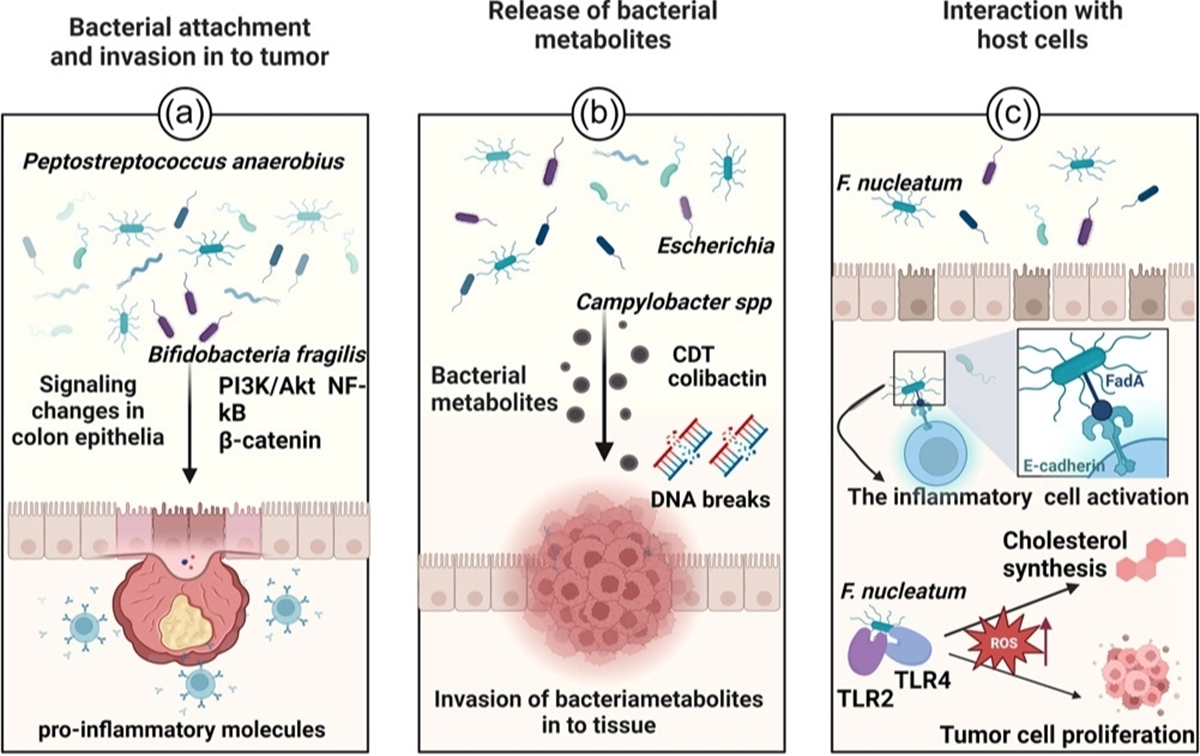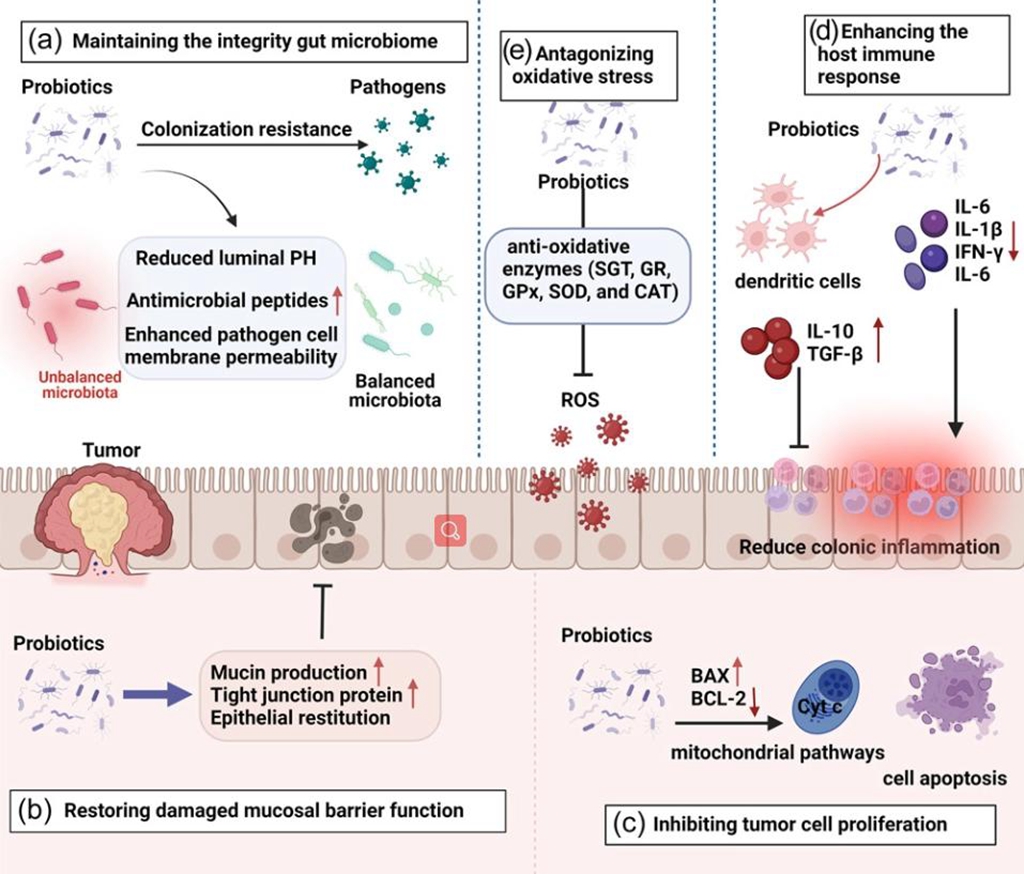南湖新闻网讯(通讯员 王玲)11月22日,我校生命科学技术学院、生物医学与健康学院精准营养与代谢团队陈振夏课题组在国际学术期刊Journal of cellular physiology在线发表题为 “Gut microbiome in tumorigenesis and therapy of colorectal cancer”的综述论文,讨论了肠道微生物失调对结直肠癌(CRC)的影响,罗列了结直肠癌筛查或发展过程中的微生物标志物,总结了益生菌在结直肠癌治疗的作用机制,为肠道微生物在结直肠癌防治的临床应用提供理论参考。
结直肠癌是全世界范围内高发病率以及高致死率的疾病之一,作为“第二基因组”的肠道微生物在结直肠癌发生发展过程中扮演着十分重要的作用。肠道微生物失调可诱导上皮细胞增殖、破坏肠道屏障、干扰宿主免疫并引起机体炎症反应,从而引发 CRC 发生。该综述首先介绍了人体肠道微生物的组成,罗列了可作为结直肠癌筛查与治疗的肠道微生物,并归纳总结了肠道微生物失调导致结直肠癌发生发展的三种主要途径(图1):(1)有害微生物在肿瘤微环境的直接致癌作用;(2)肠道微生物通过产生代谢物或基因毒素作用于结直肠癌的发展;(3)微生物-宿主相互作用激活癌症信号通路,加速结直肠癌发展。

图1肠道微生物加速CRC癌变的途径
近年来,益生菌在CRC中的作用引起了广泛关注,正常肠道粘膜到肠道息肉增生,再到 CRC 的转变是一个漫长癌变的过程,给治疗和减缓提供了有利的时间,益生菌的添加在一定程度拮抗结直肠癌的发展。随后,作者阐述了益生菌在结直肠癌预防和治疗过程中的作用机制。益生菌可通过维持肠道微生物稳态、恢复受损的肠道粘膜屏障功能、促进癌细胞凋亡、增强宿主免疫反应以及对抗机体的氧化应激等途径拮抗结直肠癌的发展(图2)。最后,作者还归纳了肠道微生物在结直肠癌预防和治疗方面的健康作用,肠道微生物可以作为结直肠癌筛查和预后的靶向物,预估罹患结直肠癌的风险指数。此外,益生菌的适量添加可以减缓结直肠癌手术、放疗或者化疗带来的痛苦。

图2益生菌预防 CRC 发生的作用途径
我校生命科学技术学院博士后王玲、研究生于可纯和侯运卿为论文共同第一作者,陈振夏教授为论文通讯作者。该项工作得到了国家自然科学基金、湖北省科技重大专项、湖北洪山实验室基金、中央高校基本科研专项资金、华中农业大学-中国农业科学院深圳农业基因组研究所合作基金和华中农业大学科技自主创新基金等项目的资助。
【英文摘要】
Colorectal cancer (CRC) is the malignant tumor with the highest incidence in the digestive system, and the gut microbiome plays a crucial role in CRC tumorigenesis and therapy. The gastrointestinal tract is the organ harboring most of the microbiota in humans. Changes in the gut microbiome in CRC patients suggest possible host–microbe interactions, thereby hinting the potential tumorigenesis, which provides new perspective for preventing, diagnosing, or treating CRC. In this review, we discuss the effects of gut microbiome dysbiosis on CRC, and reveal the mechanisms by which gut microbiome dysbiosis leads to CRC. Gut microbiome modulation with the aim to reverse the established gut microbial dysbiosis is a novel strategy for the prevention and treatment of CRC. In addition, this review summarizes that probiotic antagonize CRC tumorigenesis by protecting intestinal barrier function, inhibiting cancer cell proliferation, resisting oxidative stress, and enhancing host immunity. Finally, we highlight clinical applications of the gut microbiome, such as gut microbiome analysis-based biomarker screening and prediction, and microbe modulation-based CRC prevention, treatment enhancement, and treatment side effect reduction. This review provides the reference for the clinical application of gut microbiome in the prevention and treatment of CRC.
论文链接:https://onlinelibrary.wiley.com/doi/10.1002/jcp.30917
审核人:陈振夏